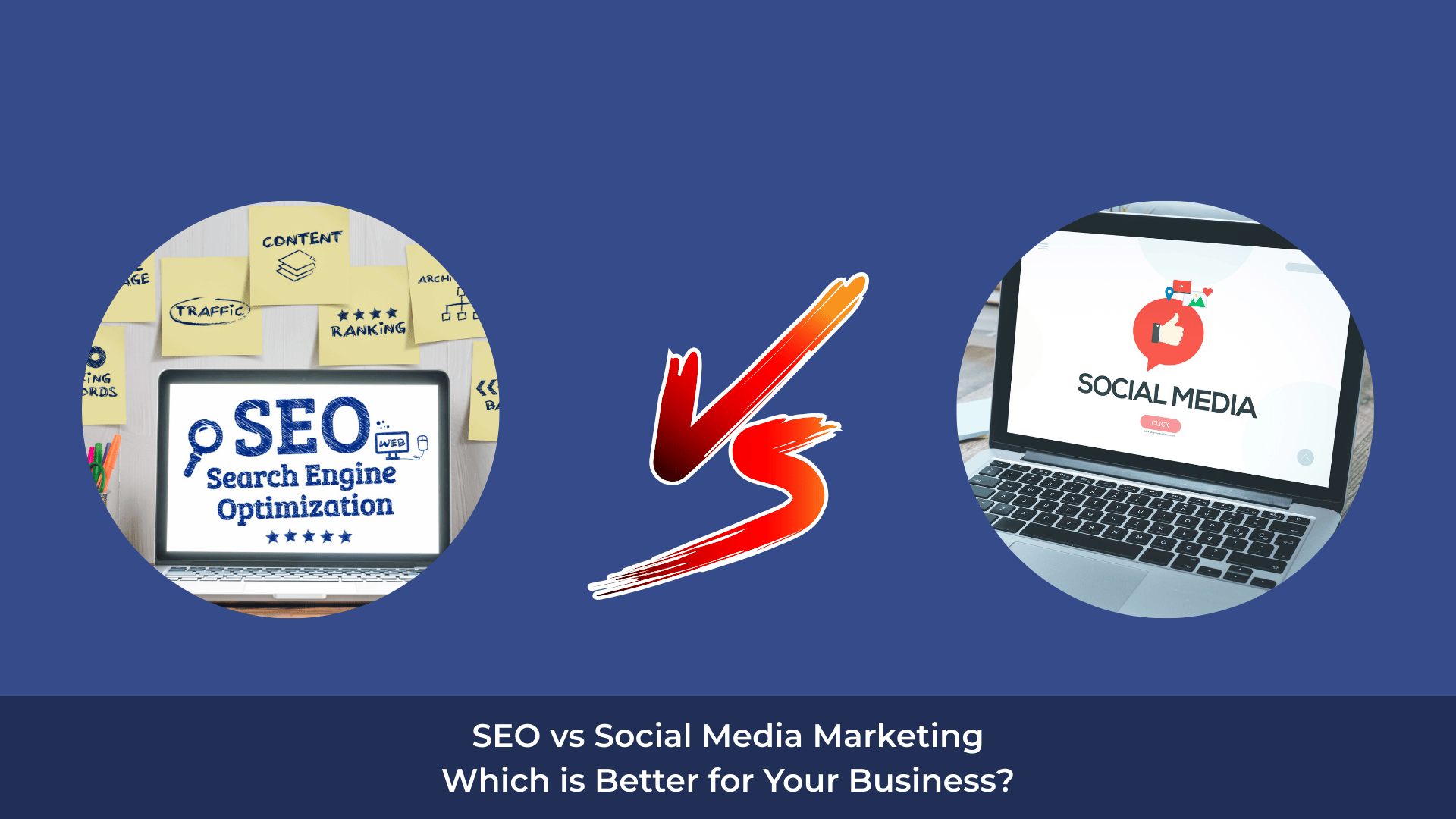As a business owner in Assam, you know that standing out in today’s competitive digital market requires more than just a website or a social media presence. The two most important digital marketing strategies that can help you grow are SEO (Search Engine Optimization) and Social Media Marketing (SMM).
But the big question is: Which one is better for your business?
In this blog post, we’ll dive into the pros and cons of each strategy and help you decide which best fits your business goals in 2025.
What is SEO?
SEO is optimizing your website to rank higher on search engines like Google. This involves changing your website’s content and structure to make it more appealing to search engines so you appear in front of your target audience when they search for relevant keywords.
Key elements of SEO include:
- On-page SEO: Optimizing website content, metadata, and structure.
- Off-page SEO: Building backlinks to increase domain authority.
- Technical SEO: Ensuring your website is crawlable and accessible by search engines.
What is Social Media Marketing?
Social Media Marketing involves promoting your brand on platforms like Facebook, Instagram, Twitter, and LinkedIn. It’s about creating content that engages your audience, builds brand awareness, and drives traffic to your website.
Key elements of Social Media Marketing include:
- Paid Ads: Running targeted ads to reach specific audience groups.
- Organic Posts: Creating engaging, shareable content to increase engagement and followers.
- Community Engagement: Responding to comments and messages and participating in relevant conversations.
SEO vs. Social Media Marketing: Key Differences
1. Reach and Visibility:
- SEO: Provides long-term visibility. Once your website ranks well, it can continue to bring traffic with little additional effort. This is crucial for generating organic leads.
- Social Media Marketing: Provides immediate visibility but requires ongoing content creation and paid promotions to maintain reach. It can help you build brand awareness quickly but may not result in sustained traffic without consistent engagement.
2. Traffic Quality:
- SEO: Brings highly targeted traffic. People are actively searching for your products, services, or information.
- Social Media Marketing: Traffic may not always be intent-driven. Many visitors come across your posts while scrolling through their feeds; not everyone will actively seek your offerings.
3. Cost and Investment:
- SEO: In the long run, SEO is a cost-effective strategy. Although it requires an initial investment in time and effort (or hiring an agency), it can deliver free, organic traffic over time.
- Social Media Marketing: Requires ongoing investment in content creation, paid ads, and possibly influencer partnerships. It can be costly but delivers more immediate results.
4. Long-Term vs. Short-Term:
- SEO: SEO is a long-term game. It may take months to see results, but once you achieve high rankings, the benefits can last long.
- Social Media Marketing: Provides quick results with the ability to test different strategies, but it requires continuous effort to maintain engagement.
Which is Better for Your Business?
The answer depends on your business goals, industry, and target audience.
- Choose SEO if:
- You want long-term, sustainable organic traffic to your website.
- You’re focused on ranking for competitive, high-value keywords in your industry.
- You want to build trust and authority with your audience.
- Choose Social Media Marketing if:
- You want to build brand awareness quickly and connect with a broad audience.
- Your business is heavily dependent on engagement, like retail or eCommerce.
- You’re looking to increase immediate traffic and drive conversions quickly.
How to Combine Both for Maximum Results
The good news? You don’t have to choose between SEO and Social Media Marketing. Combining both can provide the best of both worlds. Here’s how:
- Promote SEO Content on Social Media: Share your blog posts, articles, or landing pages on your social channels to increase visibility and drive traffic.
- Use Social Media Insights for SEO: Social media data can provide valuable insights about what your audience likes, which can help refine your SEO strategy.
- Social Signals: While not a direct ranking factor, activity on social media can increase brand awareness, which may indirectly help with SEO rankings.
Final Thoughts
SEO and Social Media Marketing are potent tools in your digital marketing arsenal. If you’re unsure which is better for your business, consider integrating both strategies into your marketing plan to maximize your reach, visibility, and lead generation.
Need expert help with your digital strategy? Learn more about how to use SEO and Social Media Marketing effectively to drive growth for your business.

